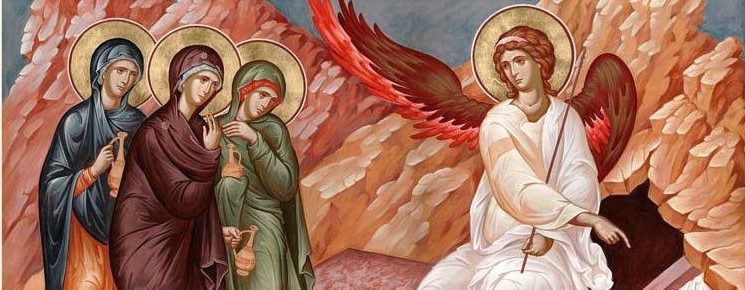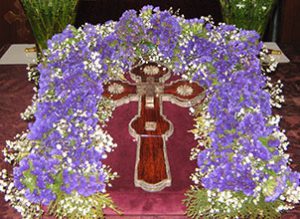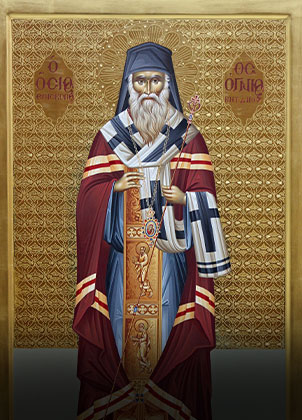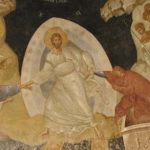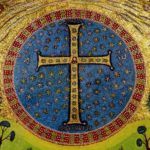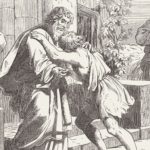ХРИСТОС ВОСКРЕСЕ!
In the name of the Father and of the Son and of the Holy Spirit.
Today we celebrate the memory of the Myrrh-bearing women, together with St. Joseph of Arimathea and Nicodemus. Why are they commemorated on the same day? What do they have in common?
There are two reasons for it: first, they are the firsthand witnesses of the death of Jesus Christ and of His resurrection, because Joseph and Nicodemus buried the body of the Lord in the tomb and the women were the first to discover that He was risen.
On the other hand, among all the followers of Jesus Christ they were the only ones who remained faithful to Him in time of His humiliation, when it seemed that evil triumphed over Him, when even the apostles scattered.
Joseph and Nicodemus were both honorable members of Sanhedrin, the Jewish supreme Council. But they were absent when the Council pronounced a death sentence to the Lord Jesus Christ.
They sympathized with the teaching of Jesus Christ but were afraid to take His side openly. The Gospel narrates that Nicodemus came to Jesus Christ secretly, by night, for the fear of the Jews, and heard from Him a sublime teaching about the regeneration of man from water and the Spirit.
The Gospel mentions also that Nicodemus prudently tried to defend Jesus Christ at one of the meetings of the Council, saying: “Does our law judge a man before it hears him and knows what he is doing?” But he received a rude answer: “Are you also from Galilee?” (John 7, 52)
Most surprising is that Joseph and Nicodemus, who had no courage to declare themselves disciples of Jesus Christ in the days of His glory, when they saw Him mocked, scourged and dying on the cross, suddenly became brave.
When the Lord was betrayed by one of His disciples and abandoned by the others, when His enemies triumphed, then Joseph and Nicodemus took courage. Their noble hearts were unable to bear such injustice, they disregarded the danger and decided to do the last service to their Teacher: to bury Him. For this sake they were both cruelly persecuted by the Jews: Joseph was first imprisoned and then exiled; Nicodemus was deprived of his rank and assets and died in poverty.
Usually, the Romans didn’t take down the bodies of the crucified from their crosses. They were left to be devoured by vultures. However, because of the feast of the Passover, the high priests asked Pilate to take down the bodies of Jesus Christ and the thieves. If Joseph didn’t take care of the burial of Jesus Christ, His body would have been cast into a common grave with the condemned.
The prophet Isaiah prophesied about this in the 53rd chapter of his book, where he speaks of Jesus Christ as a “Lamb led for slaughter”, he says: “And they made His grave with the wicked, but He was with the rich at His death, Because He had done no iniquity, nor was any deceit in His mouth.” (Is. 53, 9)
As St Mark recounts in his Gospel, Joseph of Arimathea, went boldly to Pilate and asked for the body of Jesus. Joseph was an honorable man and was known to Pilate. Then Joseph with his servants took down the body of Jesus form the cross. There also came Nicodemus and brought a large quantity of a mixture of myrrh and aloes. They wrapped the body in fine linen with spices and laid Him in a sepulcher, which was hewn out of a rock, and rolled a stone against the door of the sepulcher.
The women, who were looking on from afar, now drew near and saw the sepulcher and how His body was laid. It was already Friday evening, and the commandment of the Sabbath obliged them to stop all activities, therefore the burial of the Lord Jesus Christ was done hastily, without observing all the rites of embalming. For that reason, the women decided to come later, after the Sabbath was over, and complete the embalming of the Lord’s body.
From the actions of Joseph, Nicodemus and the Myrrh-bearing women we can assume that they saw in Jesus Christ only a righteous man, a prophet. The women had no more hopes: He, whom they loved, whom they followed, died on the cross. All their expectations didn’t come true; they had only the tortured dead body of their Teacher.
But their faithfulness didn’t die. As they followed the Lord and ministered to Him when He was living, now they wished to serve Him dead. Neglecting danger, they ran to the sepulcher, carrying vessels with myrrh, being absorbed by one thought: to serve the Lord.
In the Myrrh-bearing women we have an example of extreme devotion, self-sacrifice, love, and fearlessness. And their exploit of love was crowned. Their mourning suddenly turned into joy, when they saw an angel in the sepulcher and heard from him the good tidings of the resurrection. And then the Lord Himself appeared to the women, saying to them: “rejoice”.
The Myrrh-bearing women give us an example of faithfulness to the end, despite all obstacles. As the Lord says: “Be faithful until death, and I will give you the crown of life” (Rev.2, 10). A Christian, who will preserve till the end his love and faithfulness, will be crowned with an ineffable joy of seeing the Lord Himself, the joy of the Resurrection.
Amen.
CHRIST IS RISEN!

